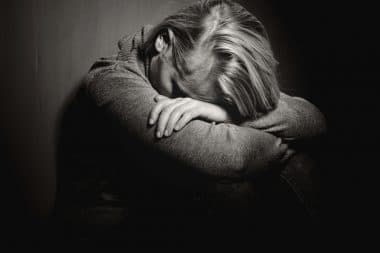Depression affects different people in different ways. Simply feeling low is not the only symptom, nor is it enough in itself to warrant a diagnosis of depression.
Consequently, there are lots of symptoms that you might experience that, by themselves, seem insignificant. But in fact, these can be signs of depression that often go unnoticed.
Changes in appetite
A common sign of depression is a change in appetite. Depression is a physiological condition as much as a mental one, and sufferers often experience a transformation in their relationship with food.
Typically this manifests as a loss of appetite which, in turn, leads to significant and noticeable weight loss. But the opposite is also true: those with depression might find some comfort or distraction in eating, causing weight gain.
This symptom is often written off as something else. A sufferer might say they’re “just not feeling hungry”, for example. But sudden, sustained or noticeable changes in weight can be symptoms of depression, and it should be considered as a possible diagnosis.
Loss of libido
Another physical sign of depression that many people dismiss as symptomatic of something else is a reduced libido or lack of interest in sex.
If you are not sexually active this might be harder to spot. However, if you’re in a relationship it is more noticeable. A sufferer might pass this off as a lack of sexual desire for their partner, or as a result of the stresses of work.
Unfortunately, a loss of libido is something many people are reluctant to talk about. Reduced interest in sex is often seen as an embarrassment, and men, in particular, are too uneasy to discuss this with their doctor. But the first step towards recovery is discussion, and it’s important to talk about such a symptom openly and honestly with a qualified medical professional.
Increased apathy or loss of interest in activities
Another sign of depression is a loss of interest in activities that you used to enjoy. For example, you might respond to an invitation to the cinema with apathy, where in the past you would have jumped at the chance to see a film with friends.
This symptom is often noticed by a sufferer’s friends and family before themselves. Perhaps a friend who was previously talkative and social is now quiet and introverted, and only someone who knows them notices it. Sudden shyness is also a symptom of performance anxiety, which in turn can be a precursor to depression.
Even if the sufferer is aware of their loss of interest in activities, they may be reluctant to talk about it. Maybe they brush it off as “just a bad week”, or they just flat-out refuse to acknowledge it. Either way, such a change can be a symptom of depression that is worth exploring.
Dramatic changes in mood
As human beings, our moods are naturally prone to change. We sometimes wake up on the wrong side of the bed and feel grumpy for the rest of the day.
While these are a natural part of being a human, depression magnifies these feelings tenfold. Consequently, someone suffering from depression might experience dramatic emotional changes, sometimes within just a few hours.
Sufferers also might find themselves becoming more tearful at everyday occurrences, such as forgetting their house keys or missing a bus. They might even tear up at a kind gesture from a stranger.
As with many of the symptoms on this list, this is often passed off as something else. Perhaps you’re overtired, or you’re nearing your menstrual cycle (more on this later). But these small changes in mood and personality are often indicative of a deeper, more pressing issue, and are worth looking into.
Changes in your menstrual cycle
Depression isn’t just a mental disorder – it also has physical symptoms. This is especially true for women, who might experience changes in their body during their menstrual cycle.
This can manifest in a variety of ways. For instance, your period might be delayed or irregular, and it might not even come at all. This latter condition is known as hypothalamic amenorrhea, which occurs when the body’s hypothalamus, which is responsible for controlling reproduction, lacks the hormones necessary to produce estrogen.
But depression can also impact a woman’s mood during their period too. While mood changes are a usual part of the menstrual cycle, dramatic changes that are out of the norm for a woman can be symptomatic of a depressive disorder.
Depression is a complex, pervasive condition that affects humans in different ways. When it comes to mental health, something that might seem insignificant can actually be just the tip of the iceberg.
If you believe you or a friend is suffering from any of the symptoms listed above, it’s important not to brush it off. Talk about it with someone you trust, or discuss it with a medical professional.








Reply